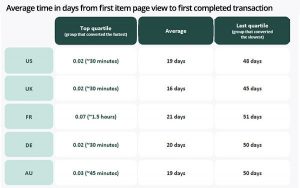Gen X marriages are crumbling because of workplace stress
A new survey from Headspace reveals the harmful impact of work stress on our personal lives and relationships.
As the saying goes, “money is the root of all evil,” but in the year of our lord 2024, maybe the true root of all evil is workplace stress.
Headspace, a digital mental health company, just published its sixth annual report on the workforce state of mind. The report uses survey data from over 2,000 workers in the United States and the U.K, along with nearly 250 HR leaders and over 200 CEOs, about their emotional and physical health at work. The aim is to track the latest trends in workplace wellness. Here are the report’s key findings:
- Work stress doesn’t end at work: On the contrary, it follows you home and ruins your life. According to the report, 77% of respondents said that work stress negatively impacted their physical health and 75% said it caused them to gain weight.
- Work stress hurts our relationships: A whopping 71% of people said work stress ended their relationship. Gen X employees were more likely (79%) than any other generation to report that work stress has led to a breakup or divorce.
- And our personal lives: Meanwhile, 37% of employees say work stress has caused in a mental health challenge such as suicidal ideation or substance use.
- Work can be a force for good: Workplaces don’t have to erode mental health. Over half of respondents said work had positively impacted their life by finding a community of like-minded people, while 48% said it improved their confidence and 44% said it helped them feel less lonely.
- Managers can hurt: 97% of employees said their mental well-being had been negatively impacted by their manager in the past year. About 43% said their manager did this by treating team members unequally, 41% said their manager failed to respect working hour boundaries, and 40% said their manager set an unreasonable workload.
- Or help: However, nearly 60% of employees reported that managers had a positive impact on them by being flexible about projects or scheduling when they had personal issues. While 48% of employees say they’ve turned to a manager for mental health support, only 24% of managers are required to take mental health training.
“Despite the overwhelmingly negative impact employees experience when work stress seeps into their personal lives, our data shows there’s a clear upside for businesses that prioritize cultural transformation in the workplace and invest in evidence-based, high-quality mental health support for their workers,” said Karan Singh, COO and chief people officer of Headspace, in a statement.

ABOUT THE AUTHOR
(8)
Report Post







